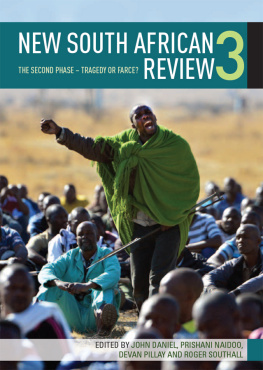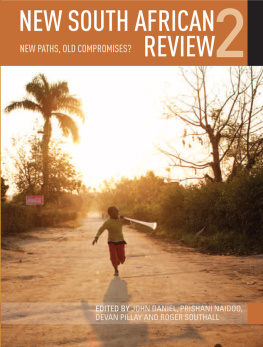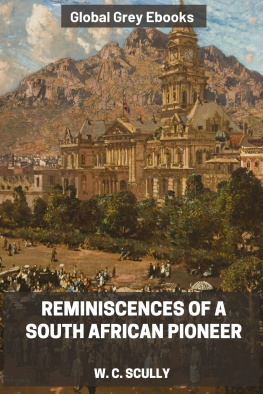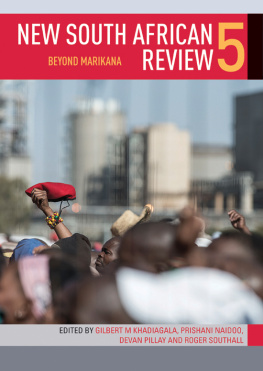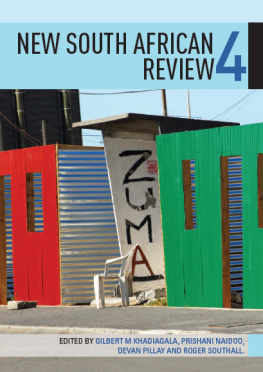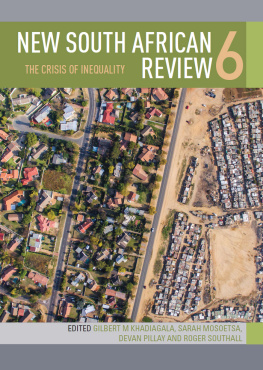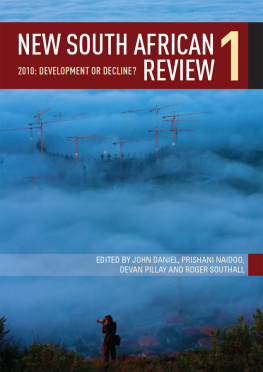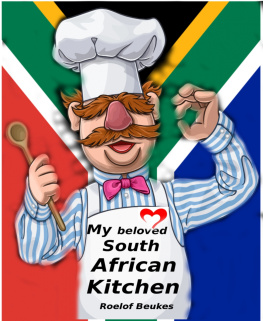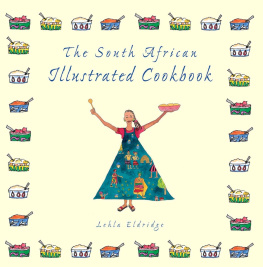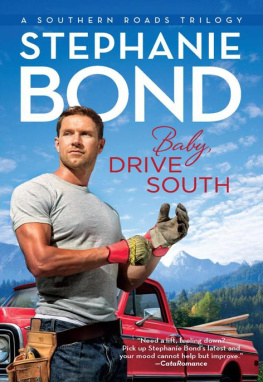Stephanie Allais - New South African Review 3
Here you can read online Stephanie Allais - New South African Review 3 full text of the book (entire story) in english for free. Download pdf and epub, get meaning, cover and reviews about this ebook. year: 2013, publisher: Wits University Press, genre: Politics. Description of the work, (preface) as well as reviews are available. Best literature library LitArk.com created for fans of good reading and offers a wide selection of genres:
Romance novel
Science fiction
Adventure
Detective
Science
History
Home and family
Prose
Art
Politics
Computer
Non-fiction
Religion
Business
Children
Humor
Choose a favorite category and find really read worthwhile books. Enjoy immersion in the world of imagination, feel the emotions of the characters or learn something new for yourself, make an fascinating discovery.
- Book:New South African Review 3
- Author:
- Publisher:Wits University Press
- Genre:
- Year:2013
- Rating:5 / 5
- Favourites:Add to favourites
- Your mark:
- 100
- 1
- 2
- 3
- 4
- 5
New South African Review 3: summary, description and annotation
We offer to read an annotation, description, summary or preface (depends on what the author of the book "New South African Review 3" wrote himself). If you haven't found the necessary information about the book — write in the comments, we will try to find it.
New South African Review 3 — read online for free the complete book (whole text) full work
Below is the text of the book, divided by pages. System saving the place of the last page read, allows you to conveniently read the book "New South African Review 3" online for free, without having to search again every time where you left off. Put a bookmark, and you can go to the page where you finished reading at any time.
Font size:
Interval:
Bookmark:

| v |
| INTRODUCTION The second phase tragedy or farce? |
| INTRODUCTION Party, power and class |
| CHAPTER 1 The power elite in democratic South Africa: Race and class in a fractured society |
| CHAPTER 2 The ANC circa 2012-13: Colossus in decline? |
| CHAPTER 3 Fragile multi-class alliances compared: Some unlikely parallels between the National Party and the African National Congress |
| CHAPTER 4 Predicaments of post-apartheid social movement politics: The Anti-Privatisation Forum in Johannesburg |
| INTRODUCTION Ecology, economy and labour |
| CHAPTER 5 Mass unemployment and the low-wage regime in South Africa |
| CHAPTER 6 Nationalisation and the mines |
| CHAPTER 7 Broad-based BEE? HCIs empowerment model and the syndicalist tradition |
| CHAPTER 8 Ask for a camel when you expect to get a goat: Contentious politics and the climate justice movement |
| CHAPTER 9 Hydraulic fracturing in South Africa: Correcting the democratic deficits |
| INTRODUCTION Public policy and social practice |
| CHAPTER 10 Understanding the persistence of low levels of skills in South Africa |
| CHAPTER 11 Equity, quality and access in South African education: A work still very much in progress |
| CHAPTER 12 Health sector reforms and policy implementation in South Africa: A paradox? |
| CHAPTER 13 Cadre deployment versus merit? Reviewing politicisation in the public service |
| CHAPTER 14 Traditional male initiation: Culture and the Constitution |
| INTRODUCTION South Africa at large |
| CHAPTER 15 South Africa and the BRIC: Punching above its weight? |
| CHAPTER 16 The Swazi Nation, the Swazi government and the South African connection |
Font size:
Interval:
Bookmark:
Similar books «New South African Review 3»
Look at similar books to New South African Review 3. We have selected literature similar in name and meaning in the hope of providing readers with more options to find new, interesting, not yet read works.
Discussion, reviews of the book New South African Review 3 and just readers' own opinions. Leave your comments, write what you think about the work, its meaning or the main characters. Specify what exactly you liked and what you didn't like, and why you think so.

